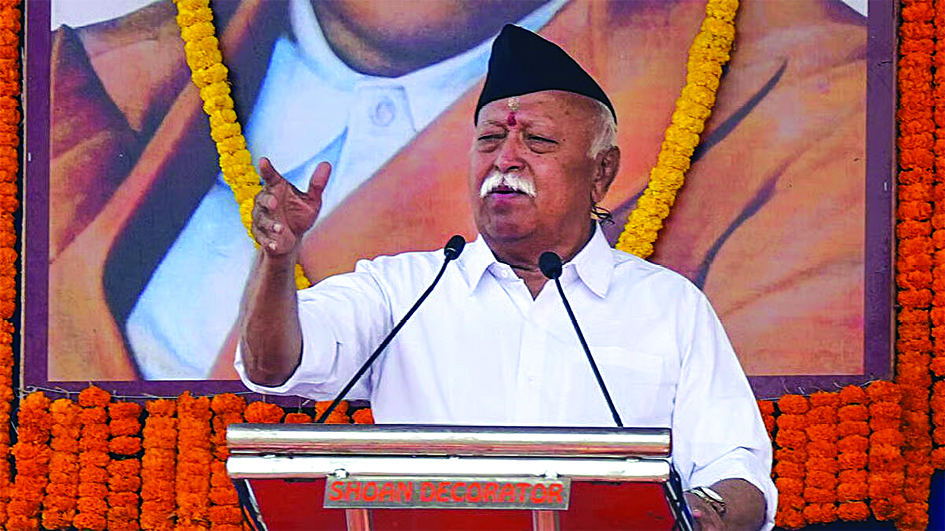| RSS Chief reaffirms unity, calls for stronger India | | |  Early Times Report Early Times Report
Jammu, Aug 28: Rashtriya Swayamsevak Sangh (RSS) chief Mohan Bhagwat set the record straight, dismissing rumors of discord with the Bharatiya Janata Party (BJP) while unveiling bold visions for India’s future. From population policies to the legacy of Partition, Bhagwat’s statements have ignited a firestorm of debate, offering a rare glimpse into the RSS’s stance on critical national issues.
RSS Sarsanghchalak was replying to questions on the last day of the centenary year a three-day lecture series organised at Vigyan Bhawan in Delhi on "100 Years' Journey of RSS: New Horizons".
On the question of ‘should Indian leaders retire at the age of 75 years', RSS chief Mohan Bhagwat says, "I never said I will retire or someone should retire. In Sangh, we are given a job, whether we want it or not. If I am 80 years old, and Sangh says go and run a 'shakha', I will have to do it. We do whatever the Sangh tells us to do. This is not for anyone's retirement. We are ready to retire or work - as long as the Sangh wants us to.”
Addressing whispers of tension between the RSS and BJP, Bhagwat emphatically declared, “There is no quarrel anywhere!” He emphasized seamless coordination with both state and central governments, dismissing any notion of friction. “The goal is the same—the good of our country,” he asserted, acknowledging that while internal contradictions in the system, inherited from British rule, pose challenges, the RSS provides advice, not directives. “We can only give advice, not make decisions,” Bhagwat clarified, quashing speculation that the RSS controls the BJP. “If we were deciding, would it take so much time?” he quipped, highlighting the independence of elected leaders.
Bhagwat endorsed India’s population policy, advocating for a To I never said I will retire or someone should retire.
In Sangh, we are given a job, whether we want it or not.
If I am 80 years old, and the Sangh says go and run a ‘shakha’, I will have to do it.
We do whatever the Sangh tells us to do.
Responding to questions about the RSS’s apparent favoritism toward the BJP, Bhagwat revealed a broader outreach. “We provide assistance to those who seek help from us for good work,” he said, adding that RSS volunteers support any party or group aligned with national welfare.
However, he noted, “Those who run away from us often don’t receive the help they need.” Bhagwat’s remarks suggest an open-door policy tempered by the reluctance of other political entities to engage with the Sangh, fueling speculation about the RSS’s influence across the political spectrum.
Setting the historical record straight, Bhagwat debunked claims that the RSS remained silent during India’s partition. “It is wrong information that RSS did not protest against partition,” he declared, emphasizing that the Sangh, though limited in power at the time, vocally opposed the division. He reaffirmed the RSS’s enduring vision of Akhand Bharat (Undivided India) as “a truth,” stirring patriotic fervor and reigniting discussions on the Sangh’s ideological roots.
Bhagwat’s address painted a picture of an RSS steadfast in its commitment to national progress, navigating systemic hurdles while fostering unity. “There might be a struggle, but there is no quarrel,” he reiterated.
Bhagwat’s words have thrust the RSS into the spotlight, raising questions about its role in shaping India’s political and social landscape. With calls for innovation, population growth, and an undivided Bharat, the RSS chief has laid down a bold agenda that promises to shape discourse for years to come. |
|
